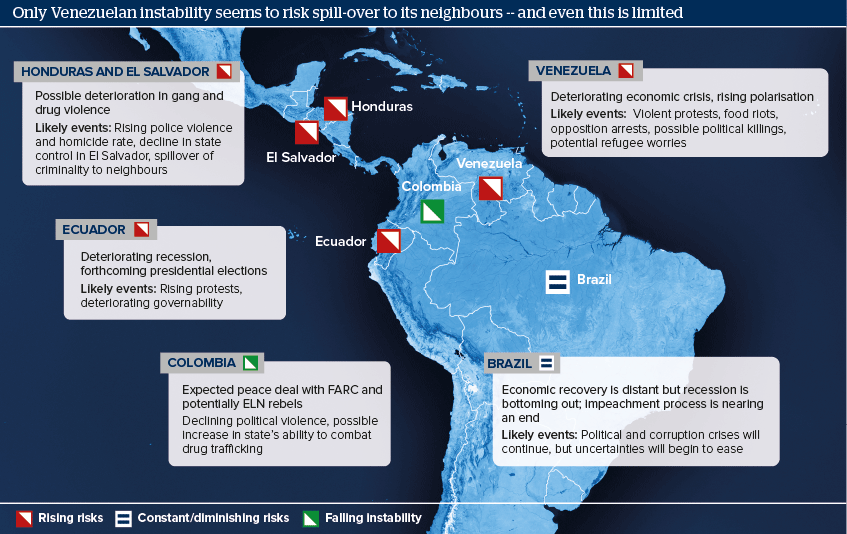Latin American flashpoints have small spillover risk
Poverty, political tensions and crime make Latin American instability endemic but contained
Source: Oxford Analytica
Outlook
Despite the deteriorating growth outlook in much of the region, rising intra-elite tensions, corruption and the extent of drug trafficking and other organised crime, instability risks in Latin America are relatively muted.
In part this relates to restraints that include somewhat stronger institutions than in the past and the unlikelihood of a return to either guerrilla warfare or direct military intervention. However, it also relates to the limits on intra-regional trade and transport, and the scope for instability to spill over from one country to others.
Venezuela remains the most at risk of rising instability, with the prospect that the economic and political crisis could prompt an outflow of refugees and criminal activities to regional neighbours. By contrast, the expected deal with Colombian rebels suggests that instability there may diminish, perhaps for the first time in half a century.
Impacts
- A deal with Colombia's FARC could channel the rebels into non-violent political activities, though drug-related violence may continue.
- Efforts to draw Venezuela's military into domestic politics could worsen medium-term instability risks.
- Brazil's crisis may be easing; while cutting into regional growth prospects, the political angle has had a muted impact.
- Central America, like Venezuela, could generate refugee problems elsewhere if violence deteriorates.
